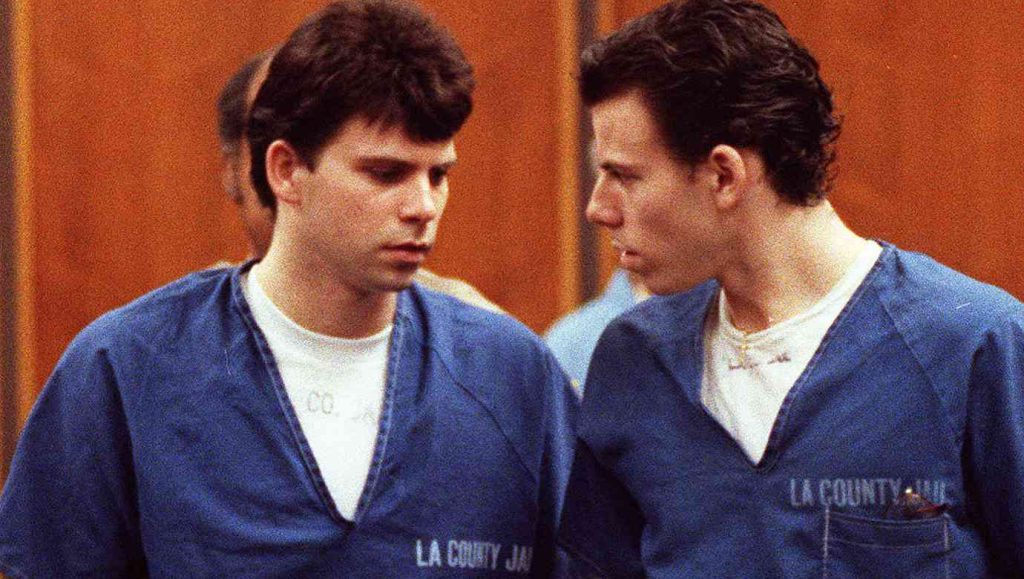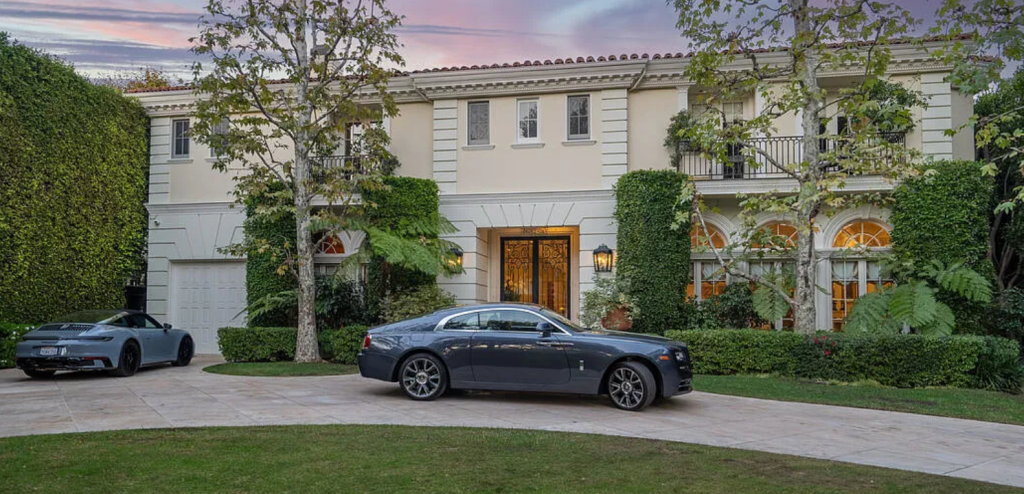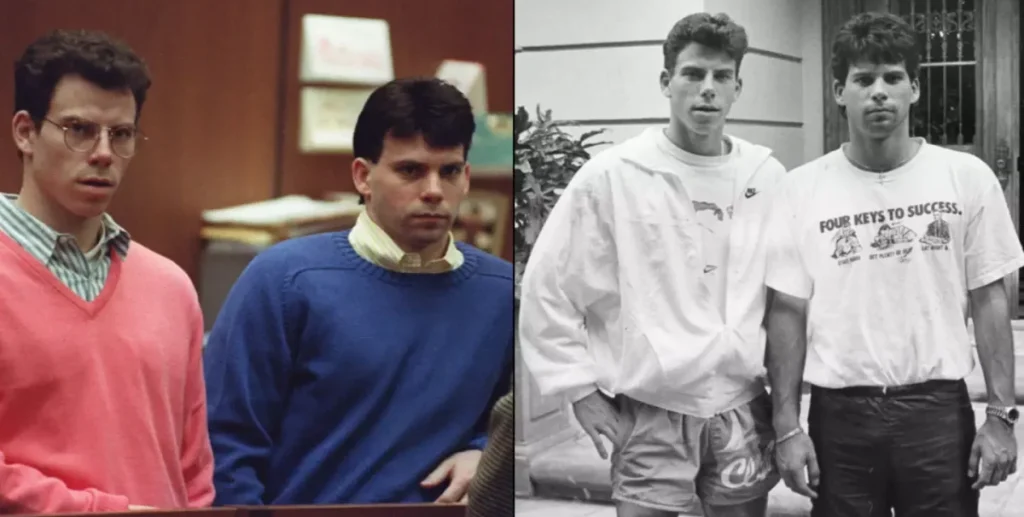

Interest in the case of the Menéndez brothers increased significantly with the debut of the new season of Monsters.
Like other high-profile crimes that reshaped public understanding of violence and accountability — including the Elizabeth Smart kidnapping by Brian David Mitchell — the Menendez case continues to raise questions about motive, control, and how warning signs are missed.
Although their convictions for first-degree murder and subsequent life sentences without the possibility of parole are widely recognized, the details surrounding the inheritance they initially pursued are less commonly discussed. Following the tragic murders, Lyle and Erik swiftly came into possession of a share of their parents' wealth.
Paris Jackson Net Worth 2025: Inside Her $150M Fortune & Unpacking Her Complex Inheritance
The Menendez family estate is frequently estimated to have been valued at around $14 million at the time of Jose and Kitty's demise, according to reports by outlets like The WealthAdvisor and the Mirror.
When adjusted for inflation, this amount would correspond to approximately $36.8 million as of the current date. They embarked on an extravagant spending spree that ultimately influenced their public visibility.
The primary assets of the estate consisted of a house situated on fourteen acres in Calabasas, which Jose and Kitty had acquired but never occupied, along with a mansion in Beverly Hills. After accounting for the loans associated with both properties, the total value of Jose's real estate amounted to $5.7 million.
At the time of his passing, Jose held 330,000 shares of LIVE Entertainment, which were trading at approximately $20 per share. Additionally, the estate included personal belongings and vehicles owned by Jose and Kitty.
The overall valuation of the estate was estimated at $14 million, resulting in Lyle and Erik each receiving around $2 million after the deduction of loans and taxes.

722 north elm drive
Four days after the murders, the brothers began a spending spree. The brothers' shopping sprees were funded by Jose's $650,000 personal life insurance policy, as widely reported in media accounts of the case, including Yahoo News.
In the aftermath of their parents' deaths, the Menéndez brothers indulged in a lavish lifestyle funded by their newfound wealth.
Lyle acquired a Porsche, three Rolex watches (purchased from Beverly Hills jeweler Fred Hayman, according to trial testimony from saleswoman Mary Ellen Mahar), and a restaurant while Erik focused his expenditures on tennis lessons ($60,000 a year) and travel as well as racking up thousands in gambling losses and investing $40,000 in a rock concert at the Palladium in Los Angeles that never happened.
Within a mere six months, their total spending approached $700,000. This ostentatious spending attracted scrutiny and raised suspicions, which ultimately assisted law enforcement in uncovering the true motives behind the homicides.
By April 1994, Erik and Lyle had already incurred $1,495,000 in criminal defense fees before their final trial.
Upon their conviction, the $14.5 million estate they had inherited was swiftly diminished due to taxes, legal expenses, and unwise financial choices. Probate records, as extensively detailed in a 1994 Los Angeles Times article titled 'Court Records Show Menendez Estate Is Now A Pittance,' indicate that nearly $10.8 million was expended...with a significant portion allocated to the brothers' legal defense, inflated property valuations, and losses in the stock market.
When the records were eventually made public, the remnants of their once opulent fortune included a house in Calabasas, a condominium in New Jersey, some jewelry and furniture, and $651,948 in cash—an amount insufficient to address their growing debts.
Even had Lyle and Erik been acquitted, they would have received nothing from the estate. Given their conviction and life sentences, the California Slayer Statute further eliminated any possibility of financial gain.
This statute bars anyone who intentionally kills another individual from inheriting from the victim's estate or receiving benefits from life insurance policies.

While prosecutors largely attributed the Menéndez brothers' motive to pure greed, their extravagant spending spree also offers a window into a deeper psychological dynamic.
Their seemingly hedonistic behavior wasn't merely about luxury; it likely served as a complex coping mechanism or a desperate attempt to construct a new reality in the wake of their horrific crime.
This spree could be viewed as a frantic effort to create an illusion of normalcy, convincing themselves and others they were simply privileged young men enjoying their inheritance, not parricides.
Such indulgence might have also been a form of impulsive self-medication, a way to numb profound emotional pain or to fill a sudden void. Additionally, having eliminated their controlling father, the unfettered spending may have been an exaggerated assertion of newfound power and autonomy they previously lacked.
Ultimately, their poor financial decisions and grand, yet failed, ventures also revealed a deep lack of emotional maturity and financial literacy.
Both brothers, in later accounts, suggested their "good times" were an "absurd" facade, masking immense pain and distress. This suggests their spending was a desperate, and ultimately futile, attempt to outrun the harrowing psychological consequences of their actions.
Contrary to popular belief, Lyle and Eric did not inherit anything from their father's will.
The financial inheritance of the Menendez brothers was forfeited following their conviction for the murder of their parents. According to California's "Slayer Statute," an individual who commits a felony resulting in the death of another is prohibited from benefiting from the victim's estate, irrespective of their familial ties.
The Menendez family residence was sold in 1991 for $3.6 million, incurring a loss of approximately $1.2 million, which was allocated to settle the mortgage, closing expenses, and obligations to the Internal Revenue Service. Furthermore, a property in Calabasas, which their parents had been renovating and was appraised at $2.65 million, was sold in 1994 for a significantly lower amount of $1.94 million.
Approximately one week following the murders, Lyle and Erik convened with executives from LIVE Entertainment to explore potential assets that the brothers could obtain from the company.
They were taken aback to discover that the $15 million "key man" life insurance policy acquired by LIVE for Jose was rendered invalid due to Jose's failure to undergo the necessary physical examination mandated by the insurance provider.
Conversely, the $15 million "key man" policy that LIVE maintained in the event of Jose's demise was active and poised to yield the company its most lucrative quarter since its establishment.
According to a registration statement filed with the Securities and Exchange Commission (SEC) by LIVE Entertainment earlier that year, Jose was covered by a $15-million 'key man' insurance policy with LIVE Entertainment as the beneficiary whose employment contract with Live extended to Dec. 31, 1991. The so-called key man policy, normally written on the lives of top corporate executives, was issued by American General Life Insurance Co. of Houston.
The brothers concluded that remaining in the Beverly Hills mansion was not a viable option. They informed their friends that they had been moving from one hotel to another due to their concerns that the same mobsters responsible for their parents' murders might target them as well.
Following the tragic events, LIVE settled an $8,800 bill at the Bel Air Hotel incurred by the brothers, which included $2,000 for room service during their five-day stay. Additionally, LIVE covered the costs for limousine services and bodyguards for the siblings.
After a period of residing in various upscale hotels in Beverly Hills, the brothers opted to lease adjacent apartments in the Marina City Towers located in Marina del Rey.
Lyle's apartment was rented for $2,150 per month, while Erik's was leased for $2,450 per month. They expressed interest in a penthouse within one of the towers priced at $990,000 and made a down payment; however, the financing ultimately fell through, preventing them from completing the purchase. In the weeks following the murders, Lyle employed bodyguards to accompany him.
These bodyguards were often taken aback by Lyle's tendency to leap from the limousine before it had fully stopped to engage in shopping sprees.
On one occasion, they observed him spending $24,000 on stereo equipment. On September 4, Lyle informed the bodyguards that he no longer required their protection, as his uncle had reached out to someone in the mob to arrange a deal.
Lyle did not elaborate on how his uncle, a middle-aged businessman from a New Jersey suburb, managed to contact the mob or how he succeeded in alleviating the death threat hanging over his nephews.
By October 1989, Lyle had incurred charges exceeding $90,000 on Jose's American Express card. He frequently traveled between New Jersey and California aboard the MGM Grand, an airline that catered to business professionals with expense accounts, while he endeavored to establish Menendez Investment Enterprises.
Lyle assembled a group of his friends from Princeton and appointed them as officers of Menendez Investment Enterprises.
He leased an office space for $3,000 per month in a shopping mall in Princeton and equipped it with high-end furnishings.
However, Menendez Investment Enterprises never occupied the office, which remained vacant, symbolizing Lyle's capacity to create an impressive facade. The friends Lyle invited to join him were athletes from Princeton, some of whom, like Lyle, had faced issues with campus authorities.
It was evident why Menendez Investment Enterprises failed to launch; all members were young, lacked business experience, and had known Lyle for only a few months.
None possessed any business acumen. It appeared that Lyle was merely pretending to run a business; he dressed and behaved accordingly, yet there was little substance behind his actions.
Lyle had long harbored the ambition of owning a restaurant. He attempted to purchase Teresa's Pizza, a takeout establishment situated across from the entrance of Princeton, but his approach offended the co-owner, resulting in the sale not proceeding.
Consequently, Lyle opted to acquire Chuck's Spring Street Café, a snack shop in Princeton renowned for its spicy chicken wings. He invested $550,000 in Chuck's, a price that the co-owner of Teresa's Pizza deemed "absurd," as the establishment was valued at approximately "$200,000."
Many observers believed Lyle was taking on more than he could handle; however, his uncles sanctioned the purchase and secured a loan against their estate to facilitate the transaction.
They hoped that the restaurant would provide Lyle with some much-needed direction in his tumultuous life. Lyle promptly set to work on Chuck's, extending the home delivery hours from 12:00 p.m. to 1:00 a.m. and rebranding the restaurant as Mr. Buffalo's.
Local merchants in Princeton considered this decision unwise, given that Chuck's had established significant name recognition over the years.
Following the acquisition of Chuck's, Lyle expressed his intention to open a second location in a nearby mall in Princeton. He also contemplated establishing outlets near UCLA and another in New Brunswick, New Jersey, close to Rutgers University.
Ultimately, he envisioned launching a new Mr. Buffalo's every two months. However, Lyle was overly ambitious, as Chuck's/Mr. Buffalo's was operating at a loss due to Lyle permitting his friends to take advantage of his generosity.
Any funds the brothers have are likely to be minimal. Occasional media projects such as (Netflix Monsters) and interviews may have generated minimal income for the brothers.
Menendez Brothers Timeline of Events: A Complete Timeline of the Entire Menendez Brothers Murder Case From Lyle and Erik's August 20, 1989 murder of their parents through their March 1996 conviction.
The legal landscape surrounding Lyle and Erik Menendez has just undergone dramatic and very recent shifts, bringing them closer to the possibility of parole after decades behind bars.
A significant ruling on May 13, 2025, saw a Los Angeles judge resentence both brothers, converting their original life sentences without parole to a new term of 50 years to life in prison. This crucial decision immediately made them eligible for parole under California's youthful offender law, which considers their age at the time they committed their crimes.
While this doesn't spell immediate freedom, it undeniably opens a clear path for them to appear before a state parole board.
Their initial parole suitability hearing, which had been set for June 13, 2025, has since been postponed to August 21 and 22, 2025.
This rescheduling reportedly occurred after objections arose, particularly from victims' next of kin, regarding the conversion of a previously scheduled clemency hearing to a formal parole consideration without adequate prior notice.
The brothers' potential release remains contingent on the parole board's assessment.
Despite Los Angeles County District Attorney Nathan Hochman's continued opposition, stemming from his belief that they haven't fully accepted responsibility, the board will carefully weigh various factors.
These include their notably long record as model inmates and their participation in prison rehabilitation programs, as they decide whether Lyle and Erik Menendez are truly suitable for release.
The accuracy of Monsters: The Lyle and Erik Menendez Story on Netflix has been a subject of discussion. While it dramatizes the events, it's advisable to consult dedicated fact-checking resources for a detailed comparison of the series with the actual historical and legal facts of the case. (The original article itself mentions a "Fact-Checking ‘Monsters: The Lyle and Erik Menendez Story’: Fact v Fiction.
How long are The Menendez Brothers in jail?
Lyle and Erik Menendez were sentenced to life in prison without the possibility of parole in 1996. They remain incarcerated to this day—each serving time at the RJ Donovan Correctional Facility in California.
How old were The Menendez Brothers when they killed their parents?
At the time of the murders in August 1989, Lyle Menendez was 21 years old and Erik Menendez was 18. Their youth and alleged history of abuse became central to their controversial defense.
What was the crime of The Menendez Brothers?
The Menendez brothers were convicted of murdering their parents, José and Kitty Menendez, in their Beverly Hills home. Prosecutors argued the motive was financial gain, while the defense cited years of emotional and sexual abuse.
Is Netflix’s Monsters: The Lyle and Erik Menendez Story accurate?
Netflix's dramatized series blends fact with creative storytelling. While it incorporates real trial transcripts and interviews, certain scenes are fictionalized for dramatic effect. For full accuracy, it's best to compare the show with court records and verified documentaries.
From billionaires and business leaders to your favorite actors, athletes, and entrepreneurs like Paris Jackson, Sting and Ozzy Osbourne, we meticulously track the numbers behind the names. We explore not just the figures, but also how fortunes are built, managed, and impacted by unique life journeys.
Explore our full collection of net worth profiles to stay up to date on who’s rising, who’s spending, and how wealth is made and managed in 2025.


